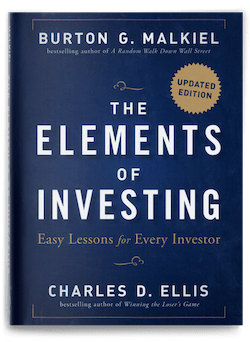Indexing
Average Annual Returns of Actively Managed Mutual Funds Compared with S&P 500
20 years, Ending June 30, 2012
-
- S&P 500 Index Fund
- 8.34%
-
- Average Active Equity Mutual Funda
- 7.00%
-
- Shortfall
- +1.34%
aConsists of all Lipper equity mutual fund categories.
Sources: Lipper, Wilshire, and The Vanguard Group.
Why does this happen? Are the highly paid professional managers incompetent? No, they certainly are not.
Here’s why investors as a total group cannot earn more than the market return. All the stocks that are outstanding need to be held by someone. Professional investors as a whole are responsible for about 90 percent of all stock market trading. While the ultimate holders may be individuals through their pension plans, 401(k) plans, or IRAs, professional managers, as a group, cannot beat the market because they are the market.
Because the plays in the market must, on average, earn the market return and winners’ winnings will equal losers’ losses, investing is called a zero-sum game. If some investors are fortunate enough to own only the stocks that have done better than the overall market, then it must follow that some other investors must be holding the stocks that have done worse. We can’t and don’t live in Garrison Keillor’s mythical Lake Wobegon, where everybody is above average.
But why do professionals as a group do worse than the market? In fact, they do earn the market return – before expenses. The average actively managed mutual fund charges about one percentage point of assets each year for managing the portfolio. It is the expenses charged by professional “active” managers that drag their return well below that of the market as a whole.
Low-cost index funds charge only one-tenth as much for portfolio management. Index funds do not need to hire highly paid security analysts to travel around the world in a vain attempt to find “undervalued” securities. In addition, actively managed funds tend to turn over their portfolios about once a year. This trading incurs the costs of brokerage commissions, spreads between bid and asked prices, and “market impact costs” (the effect of big buy or sell orders on prices). Professional managers underperform the market as a whole by the amount of their management expenses and transaction costs. Those costs go into the pockets of the croupiers of the financial system, not into your retirement funds. That’s why active managers do not beat the market – and why the market beats them.



 Previous Page
Previous Page
